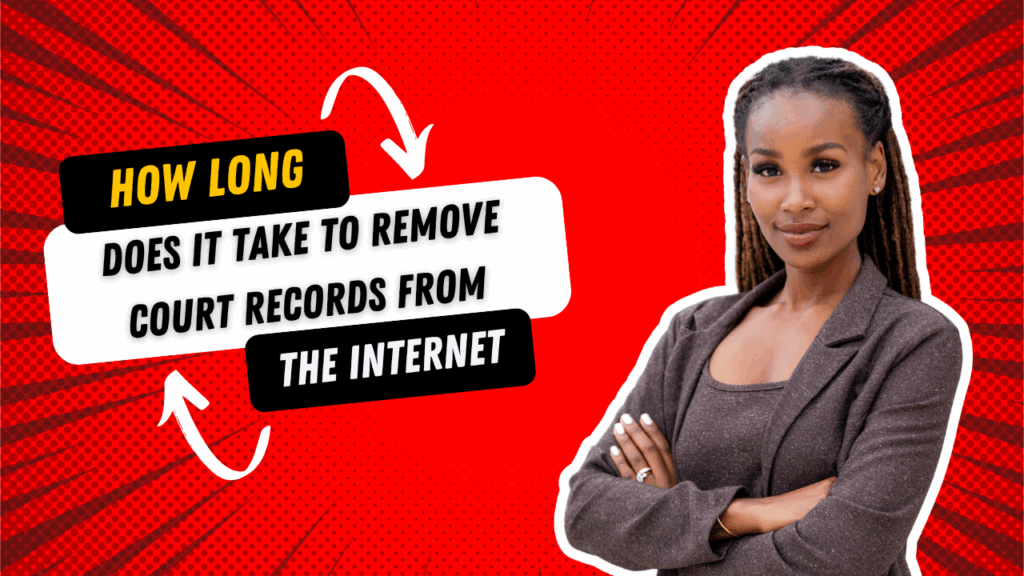Removing court records from the internet isn’t always fast—or easy. Depending on the type of record, where it’s published, and your removal method, the timeline can vary from a few days to several months. Here’s a clear breakdown of how long it takes to remove court records online and what factors can speed up or slow down the process.
Dig Deeper: How to Remove Court Records from Google Search
Average Timeline for Removing Court Records
- Direct Source Removal (Court Website): 2-8 weeks
- Background Check Sites (Spokeo, Whitepages, BeenVerified): 1-4 weeks
- Google Removal (Sensitive Info): 1-3 weeks
- SEO Suppression (Burying Results): 3-6 months
What Affects the Timeline?
1. Type of Record
Criminal records, civil cases, bankruptcies, and eviction records are all treated differently. Criminal records may take longer due to stricter removal criteria, while minor civil cases may be easier to delete.
2. Source of the Record
- Court Websites: Removal depends on the court’s update speed and policies.
- Third-Party Sites: Background check companies vary in response times, with some requiring repeated requests.
- News Sites: News articles can be harder to remove without a clear legal reason.
3. Your Legal Rights
If your case was expunged, sealed, or dismissed, you may qualify for faster removal. Without this, you may need to rely on SEO suppression instead.
4. Response Speed
How quickly you can gather documentation (like expungement orders) and contact the right sources directly affects the timeline.
Fastest Removal Methods
1. Expungement or Record Sealing
If your case qualifies for expungement or sealing, getting an official court order is the fastest way to trigger removal. Once sealed, you can send proof to websites still displaying the record.
2. Contacting the Source Directly
If the record appears on a background check site, find their “opt-out” or “contact” page and submit a removal request. Be ready to provide proof that the information is inaccurate or outdated.
3. Using Google’s Removal Tools
If the court record shows your sensitive personal information (like your home address, Social Security number, or financial details), you can use Google’s Content Removal Tool. This is one of the quickest ways to get a link removed from search results.
4. Professional Reputation Management
A reputation management service like Top Shelf Reputation can speed up removal by managing requests, running SEO campaigns, and using proven methods to reduce your exposure.
Slowest Removal Scenarios
- Public Court Websites: Government sites can be slow to update, especially for older records.
- Persistent News Coverage: Even if a case is dismissed, news stories can remain online indefinitely without intervention.
- Unauthorized Third-Party Sites: Some sites may ignore removal requests unless legally required to comply.
What to Do If Removal Is Taking Too Long
If weeks or months have passed without progress:
- Follow up with the websites you contacted
- Provide additional proof (expungement order, court records)
- Consider a legal demand letter (especially for false or defamatory content)
- Use SEO suppression to push down unwanted results
Removing court records from the internet can take anywhere from a few days to several months, depending on the type of record, its source, and your approach. Being proactive and using the right strategies can speed things up.
Need help? Top Shelf Reputation specializes in removing court records and protecting your online reputation. Contact us today to start cleaning up your search results.

